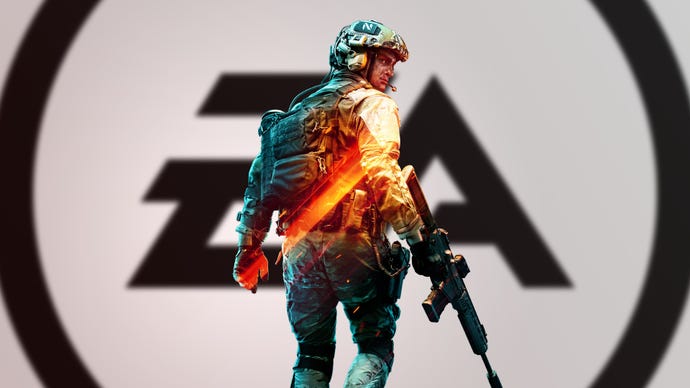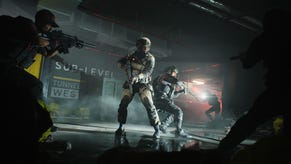EA wants its own Call of Duty salt mines with Battlefield, and it doesn’t make sense
EA is back on its Battlefield Universe horse again as it continues to rope in studios to work on Battlefield. But is it all a little desperate?
The road EA is taking with the next Battlefield has been slowly coming into view in the months since the company began to right the Battlefield 2042 ship. That may not necessarily be evident, if all you’ve been really following is 2042’s constantly evolving state. Behind the scenes, however, EA and series creator DICE have been putting together the building blocks for what is very likely not going to be just a standard sequel in the storied military shooter series.
In the simplest possible terms, EA clearly wants to revive the long-lost dream of seriously competing against Call of Duty. The plan, judging by all the moves the publisher has been making over the past year and change, is seemingly to do what Activision did with its own series.
And what better way to follow a winning team’s formula than to, well, hire the coach of that team. Nearly three years ago, EA put Byron Beede in charge of the Battlefield series as its general manager and SVP. Just before he took the reigns of Battlefield, Beede spent years at Activision leading Call of Duty, and Destiny. More pertinently, he’s credited with essentially using the latter as a blueprint to transform the former. I.e., turn Call of Duty into a live service, ongoing game.
Beede’s appointment actually came before Battlefield 2042 had been properly revealed, let alone shipped. When it finally launched, you could tell that much of what maligned it was rooted in its aspirations to become a live service project. It’s unlikely the veteran executive had much input on the direction of the game at that point, but even then, EA’s ambitions to turn Battlefield into Call of Duty were clear.
To its credit, EA - as far as one could see, anyway - committed a lot of resources and plenty of talent to Battlefield 2042. It was obviously a major project for steward DICE, but the game also received tremendous co-development support from Ripple Effect (formerly DICE LA) with Battlefield Portal, not to mention other contributions by Criterion Games - causing its own Need for Speed game to slip.
In that sense, the moves EA has been making in recent months - likewise to bolster the production of the next mainline Battlefield - don’t look so different. But it’s the hows and whys that have me concerned.
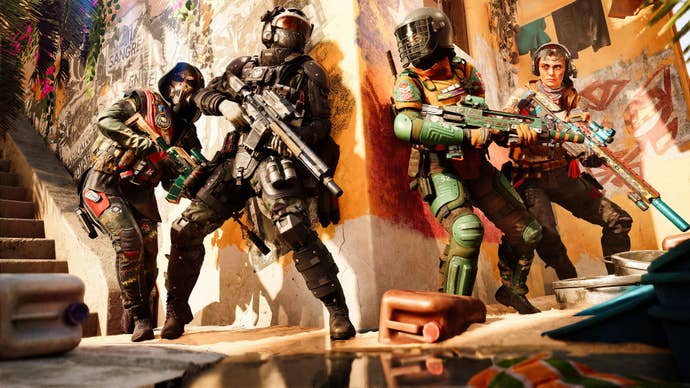
After the disastrous launch of Battlefield 2042, EA retreated for a time, before orchestrating a full-blown restructuring at DICE, and handing creative reigns over to Respawn (and classic Call of Duty) veteran Vince Zampella. The goal was to salvage whatever one realistically could from what was then a burning husk of a game, while quietly laying out some groundwork for the future in the background.
That change in focus was also accompanied by the opening of a whole new studio, led by Halo co-creator Marcus Lehto, to create narrative content for the series. No one knew what that really meant in practical terms, even after Lehto began building a team in earnest, and giving it the name Ridgeline Games.
It had the appearance of a cohesive plan, one that was being executed on before our eyes. EA then, yet again, enlisted the help of Criterion to work on Battlefield, in what felt like a Deja vu. Something changed, however, because about 20 months later, EA unceremoniously shuttered Ridgeline Games before we’d seen anything the team worked on, as part of wider layoffs at the company.
So, what happened? Did EA reconsider its plans for single-player, narrative-driven Battlefield content or was something else going on behind the scenes? Well, just days ago, EA signalled that those aspirations may not have been entirely abandoned, as it brought in yet another studio into the fold: Motive. The people behind the Dead Space remake are now in charge of the storytelling, narrative side of Battlefield.
Are you seeing a pattern here?
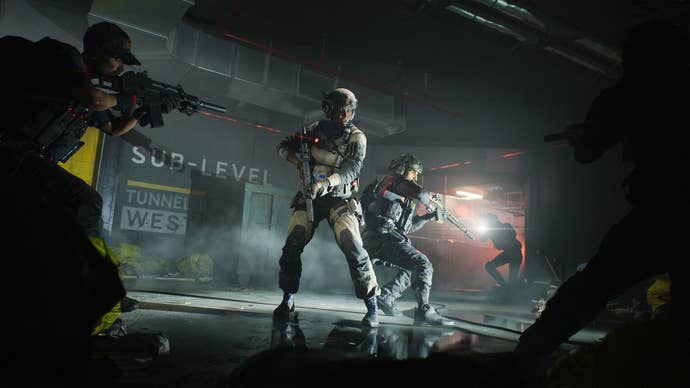
To recap, that’s DICE Sweden, Ripple Effect, Criterion, and now Motive - all working on Battlefield in one way or another. EA is, without question, trying once more to replicate the Call of Duty model that’s been very successful for rival Activision. The Call of Duty publisher managed to, over the years, transition almost every single studio it owns to work on the shooter, in one way or another.
Typically, core studios would lead the yearly premium releases, while a support studio works in the background on the free-to-play battle royale mode Warzone. All other remaining studios get assigned work as needed. Some create cosmetics, others develop the PC port, and some contribute to Zombies, seasonal content and various modes on the periphery. Without Call of Duty, there is no Activision, so everyone needs to pull their weight in the Call of Duty mines.
Is this the model EA is building towards today? Beede’s involvement certainly is a good indication that’s the case. Indeed, EA outright told investors that the next Battlefield is taking cues from Call of Duty: Warzone, specifically in how the F2P mode ties into the larger CoD ecosystem. That’s not to say the next Battlefield won’t flaunt a distinct identity - the last time the series tried to appeal to a different audience backfired spectacularly. The people in charge know this, and early murmurs point towards a return to classic Battlefield.
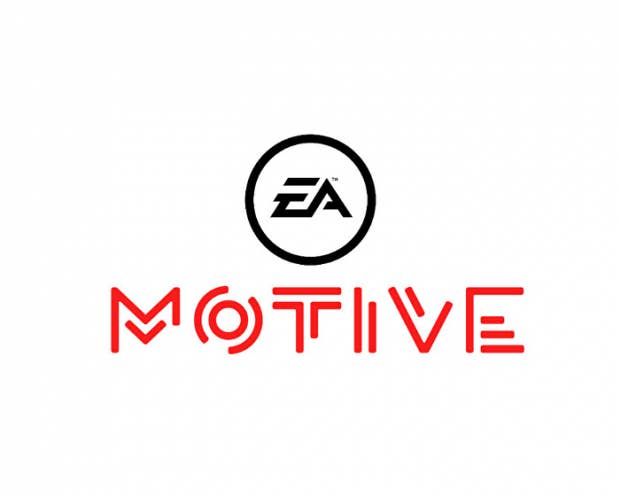
But I can’t help but feel that EA is putting the cart before the horse here. To commit this hard to what is, in essence, a major shift in how Battlefield is presented and packaged, seems a little unusual. I obviously haven’t seen what EA bigwigs have; perhaps the next Battlefield truly is a return to form that the company is so confident in to justify this backing.
Perhaps, though, this is all posturing to try and build something that could carry the live service shooter mantle as Apex Legends nears the end of its life. It’s probably impossible to expect the games industry to build on organic growth, rather than hedge bets and strive towards a goal because it makes the most business sense.
Whatever the case may be, I really, really hope the next Battlefield isn’t a misfire. Otherwise it will join Medal of Honor in the giant EA graveyard, and I’d hate to see that happen.
